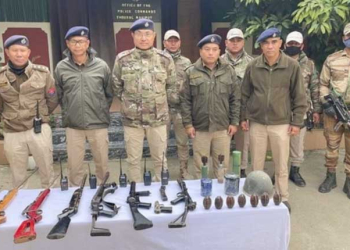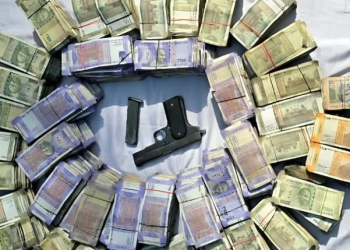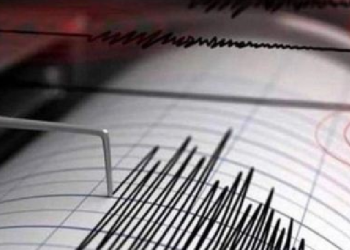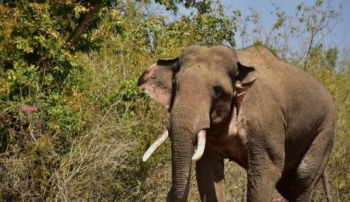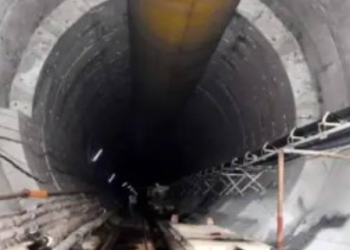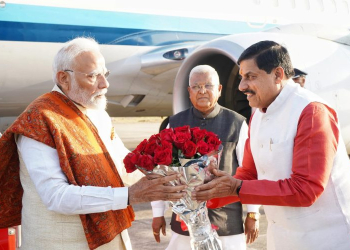Bengaluru, Aug 27 (IANS) For long known as the land of coffee, silk and sandalwood, Karnataka, in later years, became popular as the IT hub of India. In recent months, sadly, the state has been in the news for communal violence and social unrest.
Hijaab, Halaal, Idgah Maidans, Tipu Sultan and Veer Savarkar have been the commonly heard flashpoints in the state in recent times.
Although some quarters blame the current BJP dispensation in the state for the tensions of late, the genesis goes much deeper.
Old time political observers point out that in many ways, Karnataka is the odd man out in south India when it comes to politics.
This southern state is the only major state to stay relatively untouched by the pull of regional fervour espoused by regional political parties. Secondly, from time to time, it has welcomed new political ideologies.
For a long period after the country became independent, the region was a bastion of the Congress. Post-Emergency, the people of the state in a way revived the political fortunes of former Prime Minister late Indira Gandhi and sent her back to the Parliament from the Chickamagaluru Lok Sabha constituency in 1978.
The state was also receptive of the Janata Parivar and was an incubator of sorts of the Janata Dal with stalwarts like George Fernandes, Ramakrishna Hegde, S.R. Bommai and H.D. Devegowda hailing from here.
It is perhaps in this light that the emergence of BJP as a viable and potent political force in Karnataka should be viewed.
After the Congress and Janata Parivar, it was the turn of the BJP to test the waters in Karnataka. The party had to work hard and long to make inroads into the political landscape of the state.
Local leaders like B.S. Yeddyurappa, supported by the likes of K.S. Eswarappa and late Anant Kumar, worked continuously for decades at the grassroots level. However, it was the Vajapayee-Advani duo that really fired the imagination of Karnataka’s electorate.
It was the Ram Janmabhoomi agitatation and L.K. Advani’s Rath Yatra that got the Hindutva bandwagon traction in Karnataka. Advani would go on to touch most of Karnataka in the years ahead, courtesy the several Yatras he undertook from time to time.
In 1994, five people were killed in police firing when the BJP led an agitation to hoist the national flag on Independence day at Hubli’s Idgah Maidan.
Observers note that the oil boom in the Gulf region led to relative prosperity and dominance of the local Muslim communities in coastal Karnataka. It also exposed many of the youth to hardline Islamist ideologies, putting them on a collision course with the nationalist-Hindu nature of the majority community.
The Indian Mujahideen, a terrorist organisation, was set up in 2005 by the Bhatkal brothers who hail from the coastal Karnataka region.
The organisations involvement in several terror activities increased the mistrust and animosity between the communities in the region. In later years, the PFI and later the SDPI would set up roots in the young Muslims of the area.
All these factors led to strong communal polarisation, resulting in strengthening the BJP. From there onwards, the BJP began making spectacular gains in Karnataka – at the Assembly as well as the Parliamentary level.
However, the ascendence of the BJP has also emboldened the fringe Hindutva outfits sufficiently enough to openly go about spreading their agenda.
Targeting the Muslim minority over issues like wearing hijaab to government schools, boycott of halaal meat, and economic boycott of Muslim businesses have been trending in Karnataka of late.
Another major flashpoint between the two communities has been their divergent stance on Tipu Sultan, the medieval Muslim ruler who fought valiantly against the British but is accused of being a rabid Islamist who persecuted Hindus immensely.
The net result has been a series of killings in which youth from both communities have lost their lives over the past few months.
The communally surcharged atmosphere in Karnataka is expected to influence the outcome of the Assembly polls due in May 2023.
With Assembly elections scheduled in as many as nine states in 2023, the year could well give pointers to which way the wind is likely to blow when India goes to polls in 2024.
Karnataka, which sends 28 members to the Lok Sabha, is a major state that will witness a fierce battle between the ruling BJP and the opposition Congress which enjoys quite a robust presence here.
(IANS)




